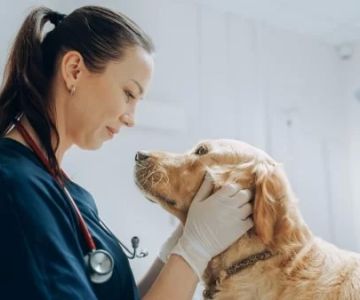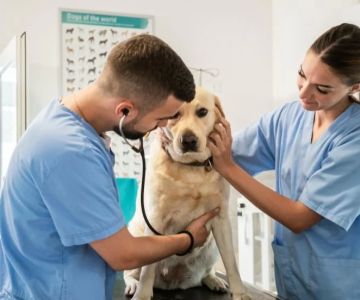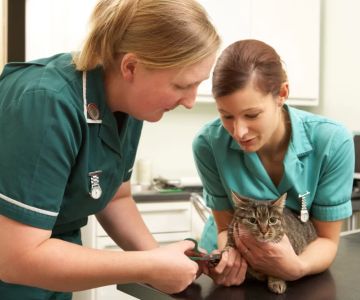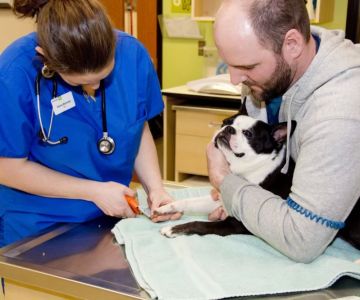What College Degree Do You Need to Be a Veterinarian? A Complete Guide to Becoming a Veterinarian
- Education Path to Becoming a Veterinarian
- Degree Requirements for Veterinarians
- Courses You Will Take in Veterinary School
- The Importance of Experience and Internships
- Getting Licensed as a Veterinarian
Education Path to Becoming a Veterinarian
Becoming a veterinarian is an exciting and rewarding career path that requires dedication, hard work, and extensive education. If you’re wondering what college degree you need to become a veterinarian, the answer lies in a combination of undergraduate studies, veterinary school, and licensing exams. Let’s break down the steps to becoming a veterinarian and the education required at each stage.
First and foremost, you need to earn a bachelor’s degree before applying to veterinary school. While the degree can be in any field, many aspiring veterinarians choose to study biology, animal science, or a related field to lay the foundation for veterinary school. After completing an undergraduate degree, the next step is to attend veterinary school, where you will earn a Doctor of Veterinary Medicine (DVM) degree.
Degree Requirements for Veterinarians
The first step in your journey to becoming a veterinarian is obtaining the appropriate educational qualifications. Here’s what you need to know about the degree requirements:
1. Bachelor’s Degree
Before applying to veterinary school, you must first complete a bachelor’s degree. While there is no specific major required, many veterinary students choose to major in biology, chemistry, or animal science, as these fields provide a solid background in the sciences necessary for veterinary school. Courses like biology, chemistry, physics, and mathematics are essential for understanding the biological and chemical processes that are fundamental to animal health.
It’s important to note that veterinary schools have specific prerequisite courses, so it’s crucial to review the admission requirements of the veterinary programs you're interested in and ensure that your bachelor’s degree program aligns with these requirements.
2. Doctor of Veterinary Medicine (DVM) Degree
Once you’ve completed your undergraduate studies, the next step is to attend a veterinary school to earn a Doctor of Veterinary Medicine (DVM) degree. Veterinary school typically takes four years to complete. During this time, students receive both classroom instruction and hands-on clinical experience.
Veterinary schools are highly competitive, and admission typically requires excellent academic performance, relevant experience (such as working with animals), and strong letters of recommendation. Veterinary school provides in-depth education in areas such as animal anatomy, pharmacology, pathology, surgery, and diagnostics.
Courses You Will Take in Veterinary School
During your time in veterinary school, you will take a variety of courses to prepare you for a successful career in veterinary medicine. Some of the core courses you can expect to take include:
1. Animal Anatomy and Physiology
Understanding the structure and function of animals' bodies is a fundamental part of being a veterinarian. These courses will cover topics such as the skeletal system, organ systems, and muscle structures in various species, including mammals, birds, and reptiles.
2. Pharmacology and Toxicology
Pharmacology involves learning about the drugs and medications used to treat animals, while toxicology covers the study of harmful substances. These courses will teach you how to safely administer medications and recognize the signs of poisoning in animals.
3. Surgery and Surgical Techniques
Veterinary surgery is a critical aspect of veterinary medicine. In these courses, students learn about surgical procedures for different animals, from basic procedures to more complex surgeries like tumor removal or orthopedic surgeries.
4. Veterinary Pathology and Microbiology
Veterinary pathology focuses on the study of animal diseases, including how they are diagnosed, treated, and prevented. Microbiology courses teach students how to identify and manage infections caused by bacteria, viruses, and parasites.
5. Diagnostic Techniques
Veterinarians need to be skilled in diagnosing diseases and conditions in animals. Courses in diagnostic techniques will teach students how to use tools like X-rays, ultrasounds, and blood tests to diagnose illnesses and monitor treatment progress.
The Importance of Experience and Internships
While a degree is essential, gaining practical experience is just as important when becoming a veterinarian. Most veterinary schools require students to complete internships or externships, which allow you to work with animals in a real-world setting. These internships give you hands-on experience in a veterinary clinic, hospital, or research setting, helping you develop your skills under the guidance of experienced professionals.
Internships also give you the opportunity to specialize in certain areas of veterinary medicine, such as surgery, emergency care, or exotic animal care, which can guide your career choices and help you build a network of professional connections.
Getting Licensed as a Veterinarian
After completing veterinary school and earning your DVM degree, the next step is to become licensed to practice as a veterinarian. Licensing requirements vary by state and country, but in the United States, veterinarians must pass the North American Veterinary Licensing Examination (NAVLE) to obtain a license to practice. Some states may also require additional exams, such as a state-specific jurisprudence exam, which tests knowledge of state veterinary laws and regulations.
After passing the licensing exams, veterinarians can begin practicing in their chosen field. Many choose to specialize further by completing post-graduate training, which allows them to become board-certified in a specific area of veterinary medicine, such as cardiology, dermatology, or surgery.
Becoming a veterinarian requires years of education, training, and dedication, but the rewards are significant. If you’re passionate about animals and interested in pursuing a veterinary career, following this educational path will set you on the journey to success.
If you’re looking for more resources or services related to your veterinary career, visit ESPLawyers for expert advice, legal services, and career guidance to help you in your professional journey. With the right education and support, you can achieve your dream of becoming a successful veterinarian!











